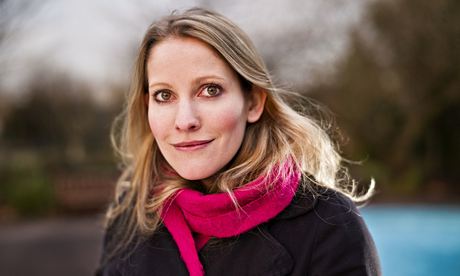
In April 2012 Laura Bates set up a website called the Everyday Sexism Project. The idea was that women would be able to use it to upload their accounts of the quotidian struggle involved in being a woman. Such stories might be niggling: visitors would be able to write about wolf-whistling, bottom-pinching or the glib remarks men like to make about women's weight and ability to concentrate. Or they might be grave: in Britain there are 400,000 sexual assaults every year, and one in four women will experience some kind of domestic violence.
Bates had no funding for this project, and no means of publicising it beyond her own Facebook wall. But she hoped that, with luck, she would persuade 50 women to share their experiences. At least then she would feel a little less alone. For she had, she writes, recently reached a "tipping point" when she realised just how many incidents she was putting up with every day, as if this ghastly stuff – the cat-calls, the gestures, the aggression and humiliation – was perfectly normal: something to be lived with, like migraine.
What followed amazed her. Two months later the website had more than 1,000 entries, and tens of thousands of people were looking at it every day. The media got interested, and she was asked to write for various newspapers and magazines. Articles about the project appeared around the world, and within 18 months the site had expanded to 18 countries. "Following it will make most women feel oddly saner," said columnist Caitlin Moran of the Everyday Sexism Twitter feed (133,000 followers to date). Now, two years on, Bates has written a (presumably long-awaited) book with a foreword by Sarah Brown.
Brown confesses herself excited by the spirit of "empathy" Bates has stirred: "The genius is that the project also serves as a brilliant, sparky, welcoming haven for girls and women who have suffered daily acts of vile sexism, grown too used to it for their own comfort, and relish the chance to share, speak up and talk back."
I would second this. The site is a wonderful idea, and I wish there'd been something similar around when I was younger and less able to stand up for myself. About the book I'm less certain. There are two problems. The first is that it is so pitifully unrigorous, relying as it does almost entirely on statistics whose methodology we never get to discover, and on tweets and stories from the site. The second is that it includes no plan. It's all very well to collate these stories, to build a picture of a world in which women are at best not taken seriously and at worst abused. But the question is: what are we to do about it?
I liked Bates's advice on street harassment: "Man in the red T-shirt, please don't touch my legs" is the kind of statement that will embarrass the perpetrator and, perhaps, enlist the support of bystanders. I wanted to cheer, too, when she rang a building company to complain about its whistling workmen. But these are isolated examples, as far as strategy goes. The chapter on the workplace, for instance, includes no advice on the law as it relates to discrimination, and no suggestions of how it might be made more effective in future. I also think that if you're going to complain about the disgraceful way the media depicted the death of Reeva Steenkamp, the girlfriend of Oscar Pistorius, it might be good to get her name right yourself (Bates refers to her as Reeta).
Everyday Sexism (the book) is a wasted opportunity: little more than another repository for anger and frustration. But at least it's not offensively puerile, unlike The Vagenda by Rhiannon Lucy Cosslett and Holly Baxter. Upset by women's magazines and all the lies and sillinesses they peddle, Cosslett and Baxter have devoted more than 300 pages to slagging them off. Fair enough, I suppose, though this is hardly news. Nevertheless, it seems to me to be beyond outrageous to have a go at the glossies for all their daft, reductive, sexist lingo – babymoon, tanorexia, vajayjay – when your own writing is replete with terms such as "bum crack", "boobage", "cum-back" and worse (Kate Middleton, meanwhile, is referred to as K-Middy). Oh, where is the new Susan Faludi? Where is the Backlash of the 21st century? Not here, that's for sure.
Grotesquely mannered, woefully researched and bizarrely dated – the authors' major reference points seem to be the long debunked "nutritionist" Gillian McKeith and Naomi Wolf's The Beauty Myth, a book that was published in 1991 and has been talked about pretty much ever since – The Vagenda achieves the rare feat of patronising the very people it purports to support. No one takes women's magazines half as seriously as do Cosslett and Baxter. We're none of us half as gullible or stupid as they seem to think.

